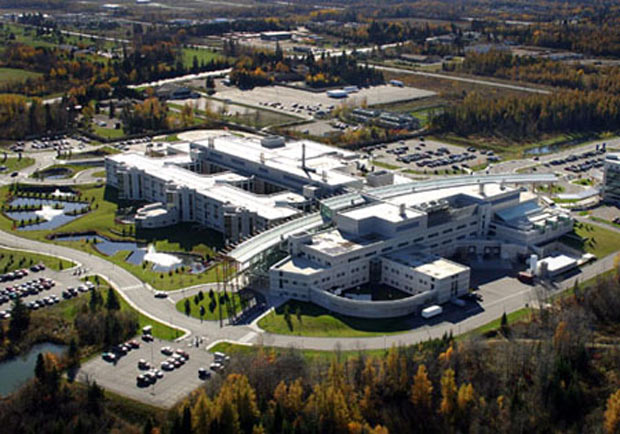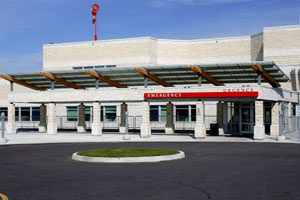 THUNDER BAY – Health – TBRHSC does not close its doors to any patients. “It is very important for people to know that we will never turn patients away,” says Lisa Beck, Director of Trauma Program, Emergency and Critical Care Services. “If you are concerned or unsure if your condition warrants a visit to the Emergency Department or not, you should seek further advice, consider using Telehealth Ontario, come to the ED or call 911.”
THUNDER BAY – Health – TBRHSC does not close its doors to any patients. “It is very important for people to know that we will never turn patients away,” says Lisa Beck, Director of Trauma Program, Emergency and Critical Care Services. “If you are concerned or unsure if your condition warrants a visit to the Emergency Department or not, you should seek further advice, consider using Telehealth Ontario, come to the ED or call 911.”
Overcapacity an issue at TBRHSC
In spite of current overcapacity at Thunder Bay Regional Health Sciences Centre (TBRHSC), patients can continue to expect safe, quality care.
Many of the beds at TBRHSC are currently occupied by Alternate Level of Care (ALC) patients who no longer need acute care, but cannot be discharged because there is no safe location available to them, such as a long-term care facility, the patient’s own home with support from community care providers, or rehabilitation.
 As of January 25, there were 409 patients admitted into our 375-bed facility. Fifty-eight of those admitted were ALC patients.
As of January 25, there were 409 patients admitted into our 375-bed facility. Fifty-eight of those admitted were ALC patients.
The situation is worsened due to an earlier than usual influenza season and several gastrointestinal outbreaks in Long Term Care (LTC) facilities.
As TBRHSC works closely with community healthcare providers to find solutions to the current situation, the public is urged do their part in preventing the flu with consistent hand washing, coughing into your bent arm, and staying home when you are not feeling well.
For many minor conditions, like coughs and colds, minor injuries, or many long-standing or chronic medical problems, patients may opt to seek treatment at their family care provider’s office or a walk-in clinic. People should be aware of health care alternatives available in the community. Where appropriate, these options, including primary care, walk-in and after-hour clinics can help you avoid visits to the Emergency Department at Thunder Bay Regional Health Sciences Centre.
For medical problems that are more serious and require immediate medical attention, such as chest or abdominal pain, signs of stroke or broken bones, patients will need to come to the ED rather than a walk-in clinic or doctor’s office.
Telehealth Ontario
Patients may also consider calling Telehealth Ontario at 1-866-797-0000. Telehealth Ontario is a free and confidential telephone service that provides advice on whether you need to get emergency care or whether another option is right for you. You can call Telehealth Ontario 24 hours a day, 7 days a week.
However, it is important to note that a call to Telehealth Ontario does not replace 911, always the first number to call in emergency situations.
Current overcapacity at TBRHSC is the result of several factors, the largest of which is a shortage of community care.







